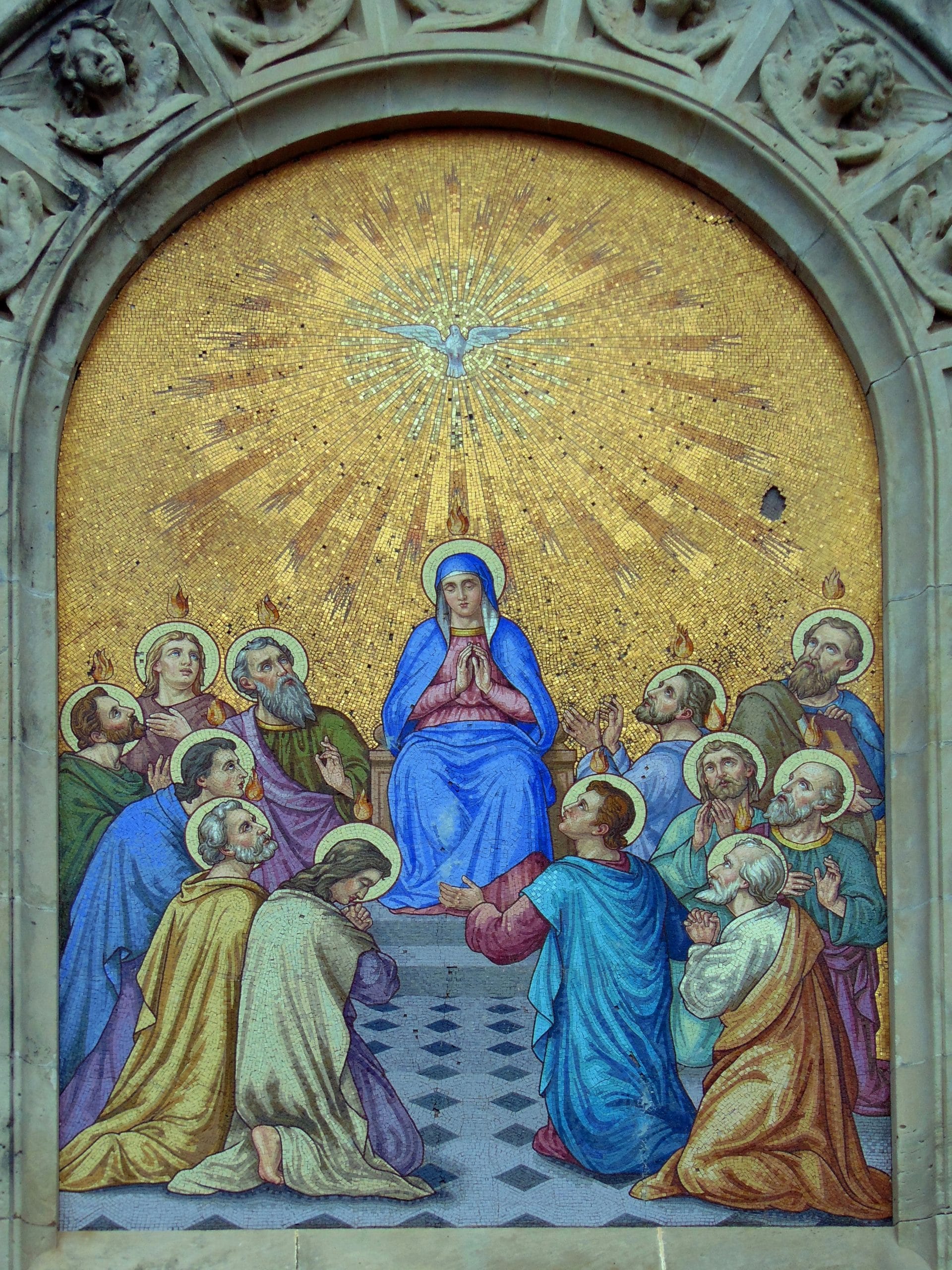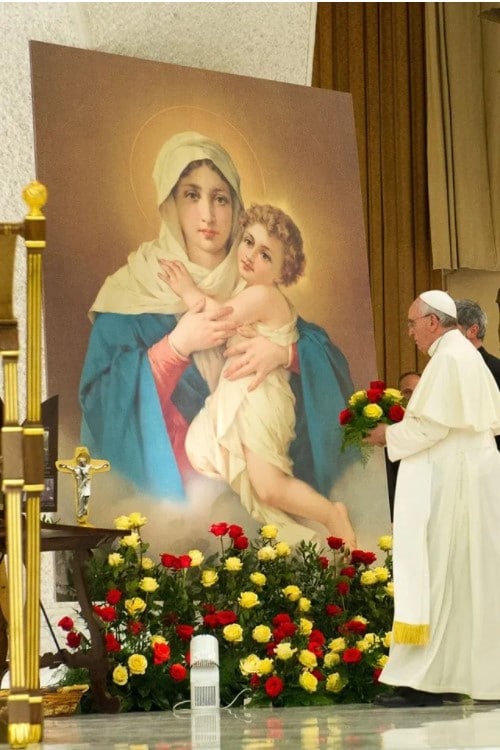The Monday after Pentecost, the Church celebrates the feast of The Blessed Virgin, Mother of the Church, instituted by Pope Francis in February 2018.
Many Catholics are still unaware that every year, on the Monday following the Solemnity of Pentecost, the Church celebrates the feast of the Blessed Virgin Mary, Mother of the Church. The main reason for this oversight is probably because it is still a very recent liturgical celebration, instituted by Pope Francis in February 2018.
It is worthwhile to become aware of the value of this celebration in order to experience it with better understanding and discernment. In fact, the 2018 decree Ecclesia Mater explains that the motivation for the institution of this feast is to foster the growth of the maternal sense of the Church and of authentic Marian piety. This is a very significant motivation for the Schoenstatt Movement as it reinforces our Marian mission.
Even though the celebration is recent, the title of Mother of the Church and the theology that sustains it have ancient and deep roots. Let’s begin with the biblical origin: at the foot of the cross, Mary accepted the mission entrusted to her by Jesus, lovingly welcoming all humanity represented in the beloved disciple (John 19:25-27).

There she thus became the tender Mother of the Church which Christ begot on the cross handing on his Spirit. In the Upper Room (Cenacle), with Mary and next to her, the apostles gathered to implore and await the coming of the Holy Spirit (Acts 1:13-14; 2:1-4). It can be said that the Church is born at Pentecost and Mary fulfills there, from the beginning, her mission as a caring mother to the emerging Church.
St. Augustine teaches that Mary is the mother of the members of Christ because she cooperated, with her love, to the rebirth of the faithful in the Church. St. Leo the Great, using St. Paul’s image of the head and the body (Col 1:17-18; Eph 5:23), recalls that the birth of the Head is also the birth of the body, thus indicating that Mary is at once Mother of Christ, the Son of God, and mother of the members of his Mystical Body, which is the Church.
The decree Ecclesia Mater recalls: “In the course of the centuries, Christian piety has honoured Mary with various titles, in many ways equivalent, such as Mother of Disciples, of the Faithful, of Believers, of all those who are reborn in Christ; and also as ‘Mother of the Church’ as is used in the texts of spiritual authors as well as in the Magisterium of Popes Benedict XIV and Leo XIII.”
Thus the foundation is clearly established by which St. Paul VI, on November 21, 1964, at the conclusion of the Third Session of the Second Vatican Council, declared the Blessed Virgin Mary as “Mother of the Church, that is to say of all Christian people, the faithful as well as the pastors, who call her the most loving Mother” and established that “the Mother of God should be further honoured and invoked by the entire Christian people by this tenderest of titles”.
Joseph Kentenich recognized the profound significance of this act of Paul VI, and in the audience with him at the end of his exile (December 22, 1965), he promised that he and the Schoenstatt Family would commit themselves to fulfill the post-conciliar mission of the Church “under the protection of Mary, Mother of the Church”. As a sign of this commitment, he presented a chalice for the church dedicated to Mary, Mother of the Church, whose cornerstone the Pope had blessed a few days earlier (December 8, 1965) at the end of the Council.

In this spirit, may the celebration of this memorial of Mary Mother of the Church take on a special meaning for us Schoenstatters who have inherited from our Founding Father the Dilexit Mariam (he loved Mary) and the Dilexit Ecclesiam (he loved the Church).
Under the protection of Mary, Mother of the Church, let us implore the Holy Spirit so that we may carry out today our particular Marian mission, being a Marian and maternal presence in this field hospital that is the world, affected by the pandemic and so many other evils.
Let us be instruments of Mary, Mother of the Church and of humanity, to welcome, love and educate with mercy and tenderness the men and women of our time, so that Christ may be born again today in their lives and in their hearts.



